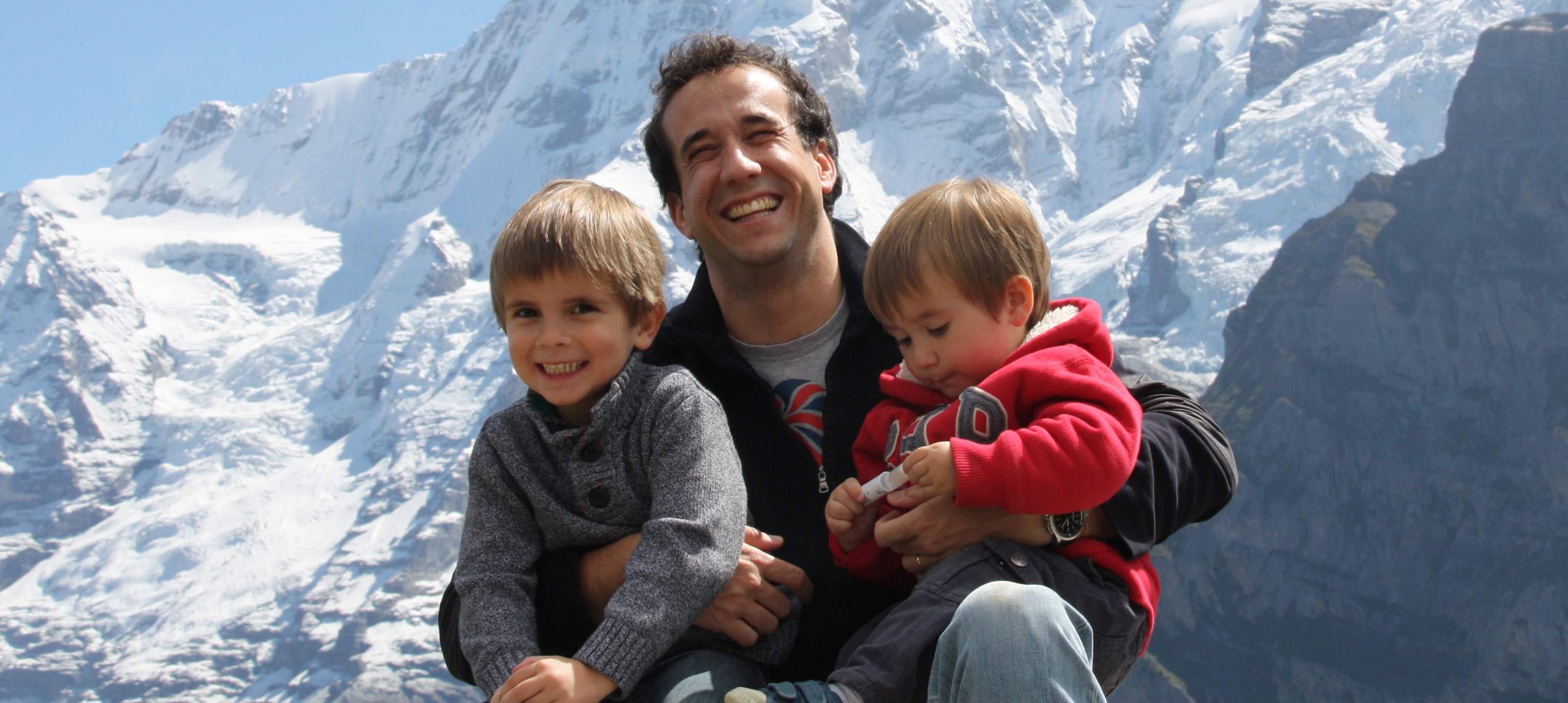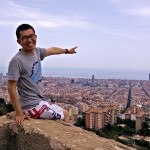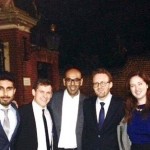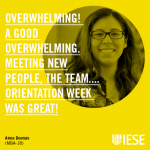This interview belongs to the blog series featuring interviews with current and future MBA students, offering readers a behind-the-scenes look at the IESE MBA Program. And now, introducing Eduard Martí, father of two children and Student of the MBA Class of 2015.
IESE: First, tell us a little about yourself. How is Eduard Martí?
Eduard: I’m from Sabadell, a city close to Barcelona, so I’m the local guy in this international environment. I studied a double degree in Economics and Law at Universitat Pompeu Fabra in Barcelona. Before joining the MBA, I worked for almost five years as a transfer pricing and international tax advisor in Garrigues, one of the biggest law firms in Spain. I thought I needed a change, a possibility to really have an impact on real businesses, so I decided to pursue an MBA.
I: You are a proud father of two children. What is it like to combine fatherhood with the MBA?
E: It is challenging, particularly during the first year of the MBA. You need to combine so many things and do it in such a way that you extract the maximum value out of each one, but it also helps you remain focused and increase your personal efficiency, allocating the right amount of time to cases, networking and job hunting while leaving room to enjoy your family. Obviously, first thing you need to cut is hours of sleep, but this comes with the father package anyway!
That said, I would have never been able to do it without the invaluable help of my wife, who fully supported me in this adventure from the very first day even though we barely saw each other during the first year. A lot of what I am getting out of the MBA, I owe to her.
I: Why did you decide to pursue an MBA at IESE?
E: Two main reasons, I would say: First, quality. IESE is recognized as one of the best business schools in the world, I knew lots of alumni who had very successful post-MBA careers, and also felt that I would be able to get a much better learning experience with the case-study method than with the more traditional lecture-based method. And second, convenience. With two children, it made no sense for me to incur the extra cost and “operational complexity” of moving to London or Paris (let alone the U.S.) to gain an experience that would be similar to one that I could get close to home!
I: What are some of your favorite things about IESE?
E: Aside from the more “typical” IESE attributes (international class profile, case method and world-class professors), I would first highlight the people (yeah, I know it sounds cheesy, but I’ve never met a nicer and more impressive group of people in terms of personal and professional values), and second, the close relationships between students and professors, who are interested in their students, their ambitions, and their opinions on the program itself, and they show this interest in a very personal and casual way. This is possible due to the size of the class, which allows professors to personally know their students and also allows students to get to know each other much better.
I: And how would you say that you’re a good fit for IESE?
E: In terms of my fit, I would say I am an energetic and open person, which goes well with the IESE focus on teamwork, and I am also ambitious and hardworking, which also connects with the spirit of the program, which aims to be one of the toughest MBAs in the world.
I: Are you involved in any clubs at IESE? Do you think it is important to supplement your education with these activities?
E: Yes, I am currently involved in the management of the Healthcare Club, the Social Action Club and the Catalan Business Club. Although these commitments require quite a lot of time and dedication, I feel that they are an important part of the MBA experience since they give you the chance to take part in activities that might be helpful for you in the future and also a way to give back part of what you got from the Clubs during first year.
I: What are your plans after graduation?
E: After graduation I will join Novartis, one of the world’s biggest pharmaceutical companies. I will move with my family to Basel, Switzerland to form part of the Finance Development Program, an MBA rotational program designed to train the company’s future CFOs.
I: What are your top 3 admissions tips for applicants aiming to go to IESE?
E: First, be convinced and have a clear idea of why IESE is the best school for you and what you can contribute to the school and to your classmates.
Second, have a plan for the future. It doesn’t need to be precise, since everybody knows this is a transformational program and there is a high chance that you will modify your initial vision during the MBA. However, you should be ambitious and have a plan in which the MBA makes sense.
And third, be open and honest about yourself and your true strengths and weaknesses. It’s easier and safer than trying to be someone who you are not.







